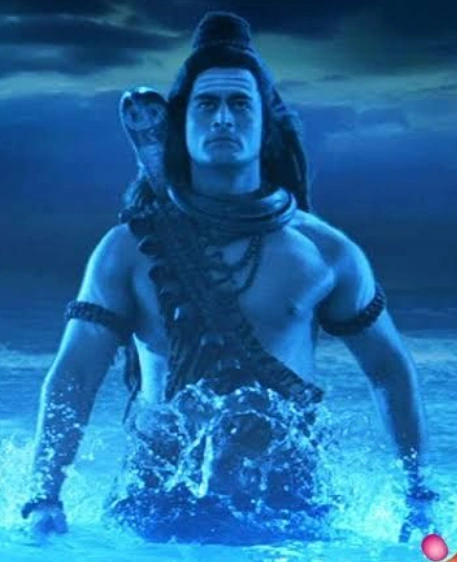- 4,059
- 1,713
I just noticed this page

 vsbattles.fandom.com
vsbattles.fandom.com
And realized (if this profile is not against our rules) there are quite a few implications of the verse following divine simplicity.
1.Parabrahman is "everything and nothing"
Abstract Existence (He is everything and nothing, all of spacetime resides inside him, a conceptual existence without which nothing can be defined
Beyond-Dimensional Existence (He existed before time and all of existence when there was nothing, all of spacetime resides inside him
Nonexistent Physiology (Nature 3, Aspect 1, 2, 3 and 5 he is formless and shapeless but contains all forms and shapes, he is nothing and everything
Reality Warping (Nothing is impossible for Mahadev, even his state of mind and feelings affect the Universe, all living beings and nature, his parabrahman form is undivided whole
Mahadev's true form cannot be seen, shapeless, formless and beyond understanding to be perceived as it is
Speed: Omnipresence (Stated to exist everywhere all at once and not limited to just one place many times)
Here he is called undivided, and also everything and nothing. So it has necessary unifying existence. It unifies all things, yet it also isn't any of the things it unifies, so it's The One/divine simplicity. So yeah, just 1 part. This sums up with him beyond space and time, and is thus entirely abstract and non physical- shapeless, formless, being called nothing, etc.
a conceptual existence without which nothing can be defined, - means he also has necessary existence, nothing can exist without him.
his whole, Para brahman, is purus and prakriti both, a complex concept that makes up everything and can control their respective tattva they embody, purus tattva is consciousness, it is nonactive, unchanging, eternal while prakriti is all physical aspects of reality)
Means he is beyond all changes but is also the cause of all changes in material world as purusha and prakiri are both manifestations of parabrahman
once again cause of all causes
Thus we learn he is beyond time, eternal and unchangable, contingent on nothing but all are contingent on it's irreducible nature
we also know the lore of the serial follows actual vedic philosophy

And vedic philosophies all consider brahman indivisible
Brahman as a metaphysical concept refers to the single binding unity behind diversity in all that exists

 en.wikipedia.org
en.wikipedia.org
BG 13.17: He is indivisible, yet He appears to be divided amongst living beings. Know the Supreme Entity to be the Sustainer, Annihilator, and Creator of all beings.
The Upanishad also says that Brahman is pure consciousness, devoid of other aspects contrary to this, and without any distinguishing features, as in, “As a lump of salt is without interior or exterior, entire, and purely saline in taste, even so is the Self without interior or exterior, entire, and pure Intelligence alone” (Brhadaranyaka Upanishad IV.v.13), which means that the Self has no internal or external aspect apart from pure consciousness, Its nature being mere impartite consciousness without any interstices. Just as a lump of salt has the saline taste alone both inside and outside, and no other taste, so also is this Self.
And also negative theology (which i dislike using personally but oh well, it seems it is used by some sects)
avāyu anākāśam. It is not space; it is not air; it is not water; it is not earth; it is not an object; it is not individual; it is not you; it is not me -
Amanah: It has no mind; it causes all thinking. (Upanishads )
Sankara (c. 788-820 AD):
(Satisfies ineffability thesis)
Moreover, the Vedas reveal through a negation of other aspects that Brahman has no distinguishing feature, as for instance in, “Now therefore the description (of Brahman): ‘Not this, not this’” (Brhadaranyaka Upanishad II.iii.6), “That (Brahman) is surely different from the known; and, again, It is above the unknown” (Kena Upanishad I.4), “That Bliss of Brahman, failing to reach which, words turn back along with the mind” (Taittiriya Upanishad II.ix.1),
And also reflected in the serial itself
he is OHM which is unworldly undefined and wordless, meaningless
his true self is beyond definition, meaning,[12] limits and understanding)
Conclusion: Satisfies both divine simplicity and divine ineffability

Shiva (Devo ke Dev Mahadev)
Shiva (also called Mahadev) is a character from a TV show called Devo ke Dev Mahadev whose plot revolves around the life of Hindu God Lord Shiva. Mahadev is described as the Supreme deity of whole existence with everything just being a part of him. He can be perceived in infinite forms and...
And realized (if this profile is not against our rules) there are quite a few implications of the verse following divine simplicity.
1.Parabrahman is "everything and nothing"
Abstract Existence (He is everything and nothing, all of spacetime resides inside him, a conceptual existence without which nothing can be defined
Beyond-Dimensional Existence (He existed before time and all of existence when there was nothing, all of spacetime resides inside him
Nonexistent Physiology (Nature 3, Aspect 1, 2, 3 and 5 he is formless and shapeless but contains all forms and shapes, he is nothing and everything
Reality Warping (Nothing is impossible for Mahadev, even his state of mind and feelings affect the Universe, all living beings and nature, his parabrahman form is undivided whole
Mahadev's true form cannot be seen, shapeless, formless and beyond understanding to be perceived as it is
Speed: Omnipresence (Stated to exist everywhere all at once and not limited to just one place many times)
- Acausality (Type 2, 4; All of spacetime is inside him, he is beyond spacetime, difference of past, present and future don't exist for him, his future don't exist but he decides it himself)
Here he is called undivided, and also everything and nothing. So it has necessary unifying existence. It unifies all things, yet it also isn't any of the things it unifies, so it's The One/divine simplicity. So yeah, just 1 part. This sums up with him beyond space and time, and is thus entirely abstract and non physical- shapeless, formless, being called nothing, etc.
a conceptual existence without which nothing can be defined, - means he also has necessary existence, nothing can exist without him.
his whole, Para brahman, is purus and prakriti both, a complex concept that makes up everything and can control their respective tattva they embody, purus tattva is consciousness, it is nonactive, unchanging, eternal while prakriti is all physical aspects of reality)
Means he is beyond all changes but is also the cause of all changes in material world as purusha and prakiri are both manifestations of parabrahman
once again cause of all causes
Thus we learn he is beyond time, eternal and unchangable, contingent on nothing but all are contingent on it's irreducible nature
we also know the lore of the serial follows actual vedic philosophy

is this show accurate? | Devon ke Dev Mahadev
Is it based on Shiva purana? Does anyone know who is a shiva bhakt? really love this show just want to seperate fact from fiction
www.indiaforums.com
And vedic philosophies all consider brahman indivisible
Brahman as a metaphysical concept refers to the single binding unity behind diversity in all that exists

Brahman - Wikipedia
BG 13.17: He is indivisible, yet He appears to be divided amongst living beings. Know the Supreme Entity to be the Sustainer, Annihilator, and Creator of all beings.
The Upanishad also says that Brahman is pure consciousness, devoid of other aspects contrary to this, and without any distinguishing features, as in, “As a lump of salt is without interior or exterior, entire, and purely saline in taste, even so is the Self without interior or exterior, entire, and pure Intelligence alone” (Brhadaranyaka Upanishad IV.v.13), which means that the Self has no internal or external aspect apart from pure consciousness, Its nature being mere impartite consciousness without any interstices. Just as a lump of salt has the saline taste alone both inside and outside, and no other taste, so also is this Self.
And also negative theology (which i dislike using personally but oh well, it seems it is used by some sects)
avāyu anākāśam. It is not space; it is not air; it is not water; it is not earth; it is not an object; it is not individual; it is not you; it is not me -
Amanah: It has no mind; it causes all thinking. (Upanishads )
(Kena Upanishad I.6)2. "That which cannot be comprehended by the mind but by which the mind is cognized know that alone to be Brahman, and not this that people worship here."
(Taittirya Upanishad II.9)3. "That from which all speech with the mind turns away, not having reached it, knowing the bliss of that Brahman, man fears nothing."
(Svetasvatara Upanishad Iv.20)"His form does not stand within the range of the senses. No one perceives Him with the eye. Those who know Him through the faculty of intuition as thus seated in their heart, become immortal."
Sankara (c. 788-820 AD):
"'Sir,' said a student to his master, 'teach me the nature of Brahman.' The master did not reply. When he was asked a second and a third time, he replied: "I teach you, but you do not listen. His name is silence.'"
(Satisfies ineffability thesis)
Moreover, the Vedas reveal through a negation of other aspects that Brahman has no distinguishing feature, as for instance in, “Now therefore the description (of Brahman): ‘Not this, not this’” (Brhadaranyaka Upanishad II.iii.6), “That (Brahman) is surely different from the known; and, again, It is above the unknown” (Kena Upanishad I.4), “That Bliss of Brahman, failing to reach which, words turn back along with the mind” (Taittiriya Upanishad II.ix.1),
And also reflected in the serial itself
he is OHM which is unworldly undefined and wordless, meaningless
his true self is beyond definition, meaning,[12] limits and understanding)
Conclusion: Satisfies both divine simplicity and divine ineffability
Last edited: